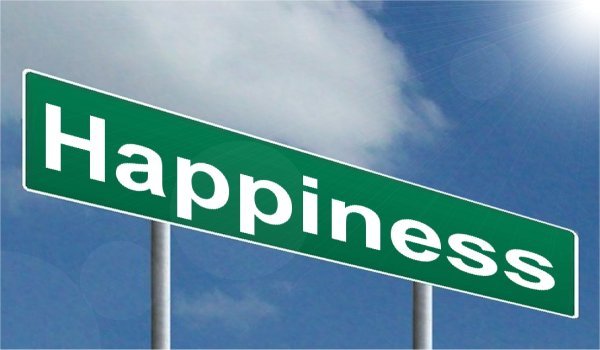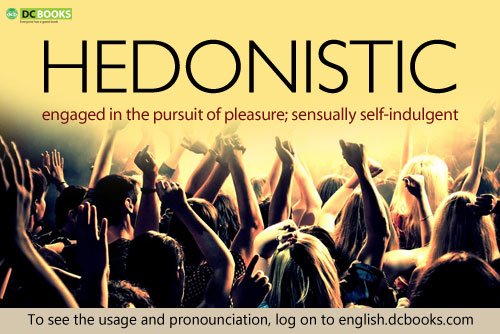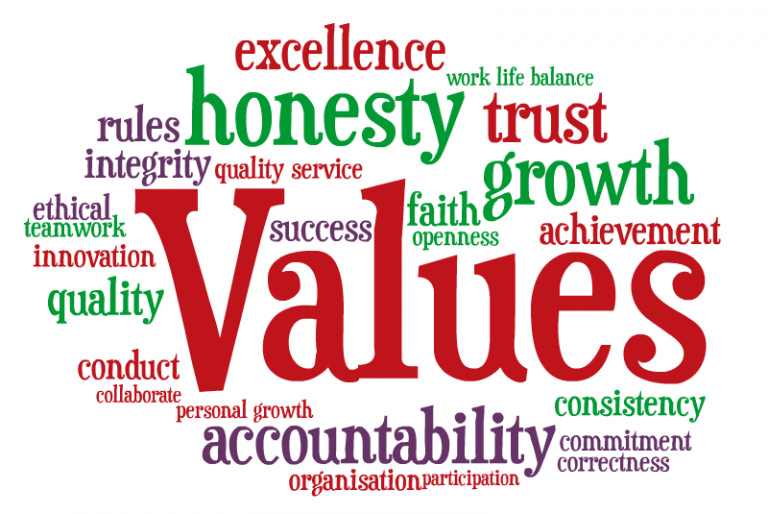Positive thinking is popular. It's been a booming business for over 20 years. Thinking negatively or experiencing negative emotions can put us into negative psychological and emotional states which can affect our physiological processes, like chemicals and hormones released in the body.

Source
Mind and Body
This can lead to imbalances in our bodies and produce negative physical effects. What affects the body also affects the brain and consciousness, but it also goes the other way. We can make ourselves sick. If you have ever had a panic attack, then you know how you can make yourself feel very ill, with symptoms like having difficulty breathing, nausea, fever, throwing up and even loss of consciousness by passing out. This is how powerful the feedback between our mind/consciousness and body can be.
The desire to think positively and avoid negative feelings, emotions or experiences can be strong. We fear getting sick or producing ill-health in our bodies. Naturally, no one wants to be ill. Positive thinking can induce happiness as a state of mind. Is this type of happiness authentic? And is there a better way to derive happiness from life than to induce positive emotional states by positive reinforcement of thoughts?
Happiness and related emotional states like excitement and joy are not stable and ever lasting. They come and go. Happiness is a flexible state of being, not permanent.

Source
Focus on Happiness and Pleasure
The downside of the positive psychology movement and positivity is when the focus that we strive towards is on being happy all the time. This causes us to seek out desires and appetites that produce happiness. We go chasing experiences that produce happiness or keep us entertained, excited and produce positive emotional states. Looking for something to do to keep us busy and excited, and not be "bored" with a "lack" of excitement or happiness.
In a focus on positivity we can also blind ourselves with rosy-colored glasses and unrealistic optimism.

Trying to be happy all the time can have us avoid various pain and suffering in life that helps us learn and grow, in favor of maximizing pleasurable sates of being we are attached to experiencing. Stress, sadness and anxiety in the short term doesn't mean we can't be happy in the long term overall.
Chasing happiness is often producing short lived positive emotional states of being that don't last. Then we keep looking for new pleasures and experiences to keep us "topped up" and feeling-good. We also avoid unpleasant or painful emotions or feelings that take us away from our attachment to that feel-good state.
There are two types of happiness to recognize: hedonistic and eudaimonic happiness.

Source
Hedonistic
From the Greek hedone, meaning pleasure, delight, enjoyment. It means to regard pleasure or enjoyment as a chief goal in life. The pursuit of pleasure, or the pursuit of happiness, is something many of us have heard as a guiding life motto or motivation for behavior. That's the delusion of the American Dream, which George Carlin has criticized in some respects:
It's a focus on feeling-good, seeking out experiences that provide us with positive sensations like pleasure enjoyment and gratification of our physical senses and psychological state. It's a focus, goal, objective, purpose and meaning of life based on activities that produce those states, such as focusing on being entertained, having a "good time", chasing adrenaline highs and constant "adventures" to provide personally pleasing experiences on the mild side, with partying, alcohol, drugs, sex, gluttony, etc. as an extreme.
Higher pursuits in life that can provide us with deeper meaning and value in the long-term -- like maybe the pursuit of truth and moral living -- come secondary. Instead of develop and raising our awareness, level of consciousness and state of being, many choose to focus on sensual pleasures and experiences to derive physical and emotional gratification.
Eudaimonic (or eudaemonic)
From the Greek eu + daimon: "good, well, the right, the good" + "guardian, guiding spirit". It means producing happiness or conducive to happiness. That's much different that pursuing happiness as a goal, objective or focus in life. Much in life produces happiness or pleasure, but it doesn't need to be our focus where we remain attached to things simply because of the pleasure we derive from them.

Source
The eudaimonic type of happiness is more fulfilling in the long term. This is where we pursue things of meaning and value in our lives that produce feelings of happiness as a by-product that comes and goes, instead of happiness and pleasure as the focus that motivates our behavior.
Overcome Adversity
Sometimes we will need to experience unpleasant feelings or experiences. Learning to bear with them temporarily in the short-term and learning to overcome our hardship can often lead to deeper positive emotional states of contentment or joy. We can learn and grow from the unpleasant aspects of life, and gain great meaning and value from learning about them.
A happy life is then not about avoiding hard times, but to be able to cope with adversity by being able to productively respond to it and grow wiser as a result. A recent study shows that coping with the death of a loved one, loss of job, or health crisis develops wisdom and insight. If we didn't learn about or experience any negative parts of life, we wouldn't learn from the negatives or learn from our mistakes in order to be wiser and know how to solve problems in the future or avoid them and know what not to do. That doesn't mean we have to do everything wrong in order to learn, but sometimes we need to fall before we can learn how to stand properly.

Source
Negative and unpleasant things can and do happen in life. This adversity can be good for us if we respond to it with resilience and work to overcome it. Letting it take us down and keep us down is not healthy, certainly. But we can take action in our lives and change things. Psychological flexibility to be able to handle the negative is key to greater well-being.
Transforming the Negative
Even traumatic events can act as a catalyst for profound change and transformation that we wouldn't have undertaken without it. People who go down the wrong path often refuse to see the error of their ways until they fall to rock bottom. Heavy drug or alcohol users often do this. The only way for them to change themselves is to fall hard enough to see the deplorable position they are in, and then rise against their false ways of living.
Feeling happy is impermanent, passing, temporary. But leading a happier life isn't about chasing pleasure or happiness to avoid the lack of unhappiness or pleasure, or compensate for any pain or unpleasant feelings or experiences. Leading a happier life is about finding meaning and value that allows us to grow as individuals.
Source
Greater Potential
We must face the positive and negative alike, the horror along with the beauty, the darkness with the light, both in the world and in ourselves, and transmute and sublimate that negative as way to reach greater heights and actualize greater potentials for ourselves and the world.
Using our strengths, some of which are developed from adversity, can help our own individual lives as well as help to contribute to something greater than ourselves. I pursue the meaning and value of truth and moral understanding in order to help myself grow and become a better version of myself. Learning and teaching about morality also helps to serve a greater purpose for to try to help and better all of humanity through more moral living.

Source
Thank you for your time and attention. Peace.
If you appreciate and value the content, please consider: Upvoting, Sharing or Reblogging below.
 me for more content to come!
me for more content to come!
My goal is to share knowledge, truth and moral understanding in order to help change the world for the better. If you appreciate and value what I do, please consider supporting me as a Steem Witness by voting for me at the bottom of the Witness page; or just click on the upvote button if I am in the top 50.

It’s tough to be happy. Happiness seems temporary to me . The things we seek happiness in, we recieve , then our mind craves different things .
Downvoting a post can decrease pending rewards and make it less visible. Common reasons:
Submit
Yes, always craving more happiness, is a sort of trap we fall into, always seeking things, always "doing" things to try to excite us and make us "feel-good". We should learn to be more comfortable in our neutral state of being, and see that as a positive state as well where we don't need to be trying to fill ourselves with more exciting "happy" feelings so much. Thanks for the feedback :)
Downvoting a post can decrease pending rewards and make it less visible. Common reasons:
Submit
I like this word Eudaimonic, thanks for sharing it and I learned it from you @krnel. In my experience in happiness, I didn't learned it from being materialistic , because the more I want things the more you are not contented, that means I chase happiness rather than happiness should chase me. I only discover happiness through meditation the more I meditate the more I became minimalist, though I prefer being in neutral state than experiencing happiness. :)
Downvoting a post can decrease pending rewards and make it less visible. Common reasons:
Submit
I have heard George Carlin do this so many times and it never gets old. He says it so well! If only folks would wake up. Yes happiness is good.And I truly enjoy ed your writing. I believe that happiness is cause from an internal 'happening' that is why we call it happiness. It is short lived and a reaction from something outside. On the other hand joy is internal longer lasting and from within. It is not dependent on an external trigger. It is dependent on you. Thanks for the article @krnel.
Downvoting a post can decrease pending rewards and make it less visible. Common reasons:
Submit
Exactly, happiness usually happens to us, as an internal response usually from an external stimulus. But it can be self-generated from inducing thoughts that provoke and summon emotional responses as well. I've talked about that in a post last year about happiness too. Forgot to add it in this one hehe. Happiness, joy, and all emotional states are internally felt, within. They all come from within, but are triggered either by self-induced feedback in consciousness (depending on us alone), or from an external source that motivates such a response. Positive and negative emotions are not meant to be everlasting. They all depend on us, and how we are conditioned or willfully choose to respond to things. We can choose to self-stimulate positive feedback to generate emotions, or be influenced by external stimulus, but it always involved us in either case. So I disagree with part of your assessment on joy. Thanks for the feedback as always :)
Downvoting a post can decrease pending rewards and make it less visible. Common reasons:
Submit
Two type of happiness;
hedonistic and eudaimonic Happinessnever knew of 2 type and we consciously engage. Hedonistic is happiness derived, pleasure, excitement, jubilation of something positive that happen or achieved and it short-lived after sometime(sex can keep one happy but after sex the hapiness fades away). But eudaimonic is like a generated kind of happiness (to me), a innate stuff, indwelling joy, enduring. For example you i give there is the happiness in my heart that know no bound. This kind of happiness that stay despite of trials and challenge.Thank you @ krnel for another enlightening content
Downvoting a post can decrease pending rewards and make it less visible. Common reasons:
Submit
Hedonism is a continual focus on pleasure, gratification, enjoyment, etc. as a way of life, as a primary pursuit tat motivates what you do, rather than just letting those positive emotional states happen. It's about chasing them through certain behavior and experience, rather than choosing other, higher, truer, realer motivations (like truth, morality, etc.) as more important to guide us in life that will automatically produce positive emotional states as a consequence, not as the primary goal though.
For example, family can be a positive thing to focus on to motivate us. But some people put their family above truth, above right vs. wrong understanding, so this justifies doing wrongs all because they are only looking at their personal life and personal well-being of those closest to them as an extension of themselves.
You can be happy with your life, and it's condition, and that makes you joyful sure. That's thinking about something and generating an emotional response as a result, not hedonism indeed ;) Just thinking and seeing the good fortune you have can bring you value and meaning in life, and that generates joy like you say. It can also fade in the face of challenges and trials. Seeking to be permanently joyful or happy isn't realistic. Emotional states fluctuate, come and go. Just like we don't stay sad forever, we don't stay happy forever either ;) Thanks for the feedback.
Downvoting a post can decrease pending rewards and make it less visible. Common reasons:
Submit
Thanks for the response. More clearer on the topic
Downvoting a post can decrease pending rewards and make it less visible. Common reasons:
Submit
Seeking happiness is good.
I do not consider hedonistic pleasures to be happiness.
Sure, they are enjoyable in the moment, but most of them have long term negative consequences that actually lower your levels of happiness.
And, where most people go wrong in positive thinking is like
putting a smiley face sticker over the gas gauge.
Thinking good thoughts of getting more fuel by some means is good.
Ignoring that you are running out of fuel is self destructive.
Downvoting a post can decrease pending rewards and make it less visible. Common reasons:
Submit
I have indeed been guilty of living a hedonistic lifestyle, I must confess. ( to the very max, truth be told)
...an interesting philosophical question...and one I have asked myself many times...
Perpetual hedonism ( with a concept of no after life), means you die happy?
(I'm not being trite, it is a serious question)
I see it differently - I have lived a life of total hedonism - BUT I am aware it is not positive for society as whole - I accept this. ( I also have no parental gene either, and I accept this also).
I see western christian moral values as the best code for a successful, happy society ( irrelevant of religious beliefs - but in the right way of doing things.) This leaves space for the 'oddities' in society - like me, but also ostracization -for really negative elements..)
Followed, btw - so rude of me not to do so before!- I do apologize ....profusely !
Downvoting a post can decrease pending rewards and make it less visible. Common reasons:
Submit
You don't need a concept of an after life to not engage in hedonism. It's irrelevant.
I agree with certain moral guidelines from Christianity, more specifically the symbolism of the Christ character/figure. The way and path is through that symbolism, of truth, morality, love, righteousness. Thanks for the feedback.
Downvoting a post can decrease pending rewards and make it less visible. Common reasons:
Submit
How so?
The pursuit of life isn't about being happy. Being happy is part of life, it comes with life, just like being sad. In our avoidance of being sad, in avoidance of the negative, we instead put happiness as a pursuit when it's rather just another part of life to experience, not something that should be the most important as something to seek out and strive for. That doesn't imply the polar opposite is the automatic fallback position, of being negative or unhappy, or sad, etc. It only implies a balance towards a neutral place of contentment without excitation of our emotions towards positive states as a primary goal in life.
Downvoting a post can decrease pending rewards and make it less visible. Common reasons:
Submit
The better word is joy.
Seeking joy is the greatest thing you can do in this life. All other things will fall in place along this path.
I didn't say be happy (or be sad) I said seek joy. Trying to be happy, as you say, is putting the cart before the horse. Trying to force things, that can't be forced.
There is no neutral place.
There is more sadness and despair than we can imagine. And there is more joy and happiness than we can imagine. Even trying to discuss such things leads to phrases like: "having good sex, times ten, all the time. And that is just saying, hello"
As we bring more joy into the world, more joy is possible.
Downvoting a post can decrease pending rewards and make it less visible. Common reasons:
Submit
Very high-quality and inspiring postings. Successful Always @krnel
Downvoting a post can decrease pending rewards and make it less visible. Common reasons:
Submit
happiness has types
well that is something new to me !
nowadays people want hedonistic more
Downvoting a post can decrease pending rewards and make it less visible. Common reasons:
Submit
Nice article☺️
A better way in dealing the ups and downs in life..
Downvoting a post can decrease pending rewards and make it less visible. Common reasons:
Submit
That's amazing. Increased positivity and happiness can decrease the pain, anxiety etc. Be positive, and positive things will happen to you. Avoid the negativity as it will only effect you.
“There is always something to be grateful for.” Rhonda Byrne.
:)
Downvoting a post can decrease pending rewards and make it less visible. Common reasons:
Submit
We Should not wait for happiness to come to us.
We should help others, Helping other can you the best ever happy feeling.
Downvoting a post can decrease pending rewards and make it less visible. Common reasons:
Submit
I've recently been reading more into this happiness state of mind that is shoved down our throats from day 1. " If you're not happy you must fix it" "feeling bad/down is not normal" I feel an individuals happiness has become not so much individual but a projection. People are not happy for themselves. They are happy if others perceive them to be happy. This type of happiness would fall under hedonistic. I prefer the Eudaimonic form of happiness as ones direct attention is not on being happy but happiness becomes a byproduct. Thanks for sharing those terms and bringing up this thought process.
Downvoting a post can decrease pending rewards and make it less visible. Common reasons:
Submit
Well, positive thinking leads us to success and negative thinking destroy us,
That is why we all should think positive.
Downvoting a post can decrease pending rewards and make it less visible. Common reasons:
Submit